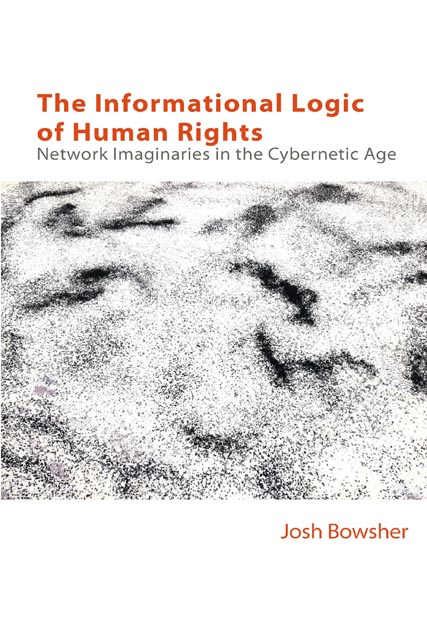Book contents
- Frontmatter
- Contents
- List of Illustrations
- Series Editors’ Preface
- Acknowledgements
- Introduction: Beyond the Neoliberal Critique?
- 1 Cybernetic Capitalism/Informational ‘Politics’
- 2 Seeing Violations as Events: Technologies of Capture and Cutting
- 3 Doing Rights as Indicators: Informatising Social and Economic Rights
- 4 When Violations Become Vectors: Human Rights Work in the Era of Big Data
- 5 After Informational Logic: Rethinking Information/Rethinking Rights
- Index
2 - Seeing Violations as Events: Technologies of Capture and Cutting
Published online by Cambridge University Press: 06 June 2023
- Frontmatter
- Contents
- List of Illustrations
- Series Editors’ Preface
- Acknowledgements
- Introduction: Beyond the Neoliberal Critique?
- 1 Cybernetic Capitalism/Informational ‘Politics’
- 2 Seeing Violations as Events: Technologies of Capture and Cutting
- 3 Doing Rights as Indicators: Informatising Social and Economic Rights
- 4 When Violations Become Vectors: Human Rights Work in the Era of Big Data
- 5 After Informational Logic: Rethinking Information/Rethinking Rights
- Index
Summary
Processes of capture, definition, optimization and filtering […] necessarily implement a distinction between those aspects of the world that are intended and included within a given digital representation and those that are excluded or filtered out.
– Seb Franklin, Control‘Information is an important prerequisite for human rights action’, one-time General Secretary of Amnesty International Martin Ennals argued at a UNESCO meeting of experts in teaching human rights in 1983, a year after becoming the founding president of HURIDOCS. ‘We have to address, therefore, the question of how to ensure that relevant information can be identified by those who need it.’ The success of human rights, Ennals concluded, hinged on the development of new information infrastructures ‘to standardise and regularise the free flow of information about human rights, their existence, […] their protection and their violation’. The construction of ‘agreed terminology, classification and information retrieval techniques’ was seen as a vital task. Insofar as HURIDOCS formed as an international NGO network precisely to develop information systems for the still nascent human rights movement, Ennals’s speech might be read as a manifesto for the organisation. His argument sets out HURIDOCS’ future work as a vital component of an informational project that relied upon the accurate documenting and communication of human rights violations.
One decade later, the seeds of the project outlined by Ennals had blossomed into ambitious, concrete results. Though sadly Ennals died just as its contents were being finalised, the publication in 1993 of the Events Standard Formats – a tool for documenting human rights violations by HURIDOCS – was a major achievement for an organisation guided by the desire to systemise human rights information. The document outlined a set of informational standards which, HURIDOCS argued, could facilitate efficient recording and communication of ‘information about […] those types of human rights violations which have become world-wide phenomena’, namely violations of civil and political rights such as ‘torture, arrests, detention; deaths and killings; displacements and destruction of property; disappearances; as well as deportation, external exile and banishments’.
At its heart, the Events Standard Formats provided a standardised, yet flexible, data model for accurately recording instances of human rights abuse that could be used by a range of organisations to scaffold their informational practices, filing systems and databases.
- Type
- Chapter
- Information
- The Informational Logic of Human RightsNetwork Imaginaries in the Cybernetic Age, pp. 72 - 104Publisher: Edinburgh University PressPrint publication year: 2022



